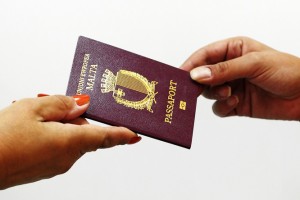Malta’s Immigration had said that it not selling European citizenship to anyone who could afford €650,000, which became controversial among many EU countries and the European Commission condemn the proposal. Although the EU and its Commission allowed the sale of the passports, it was heavily detested by many EU countries because it “cheapened” the citizenship, coveted by other countries.
Malta said that it is changing the original plan of selling the passports and are requiring the migrants must have lived in the Island nation for a year.
According to Malta’s official statement “no certificate of naturalisation will be issued unless the applicant provides proof that he/she has resided in Malta for a period of at least 12 months immediately preceding the day of issuing of the certificate of naturalisation.”
The European Commission suggested to Malta after talks that it should also stress the applicant should have a “genuine link” to the country. Employment or relatives are valid links. According to the EC, the ability to pay is innate with any citizen of a country, which makes it “cheap” just to sell the citizenship to anybody.
Malta’s earlier plans of selling passports for access in the EU was part of a plan to attract other citizens from abroad to bring in billions in euros for the country in the next five years, which could help Malta’s financing develop schools, healthcare and jobs.
